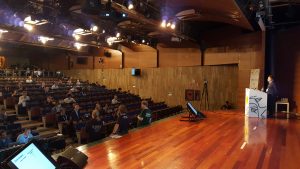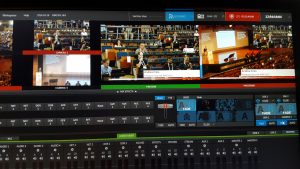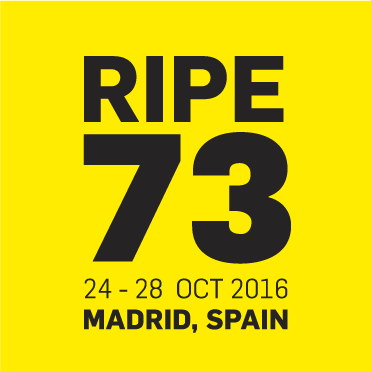Day three of RIPE 73 started with 601 attendees checked in and a packed agenda. In the Address Policy Working Group (WG), three policy proposals were discussed – RIPE Transfer Policies, IPv6 PI Sub-Assignment Clarification and Locking Down the Last /8. The latter proposal was abandoned following a lengthy and heated debate on the mailing list while the other two will continue forward in the PDP.

The first Address Policy WG session
After the break, Address Policy resumed for its second session. There was feedback from the RIPE NCC before a presentation from Erik Bais took a wider view and asked about the future of the WG. Would it keep discussing IPv4 ad infinitum, or was it time to look to the future?
In the other room, Connect WG was taking place. There were presentations on two projects that had come out of the IXP Tools Hackathon, which was held the weekend before the meeting. Franziska Lichtblau from TU Berlin also provided some insights into illegitimate traffic at IXPs.
After lunch were the IPv6 and MAT WGs. Geoff Houston spoke about using “glueless delegation” to figure out how IPv6 was operating in the DNS. Vaibhav Bajpai then talked about measuring the effects of happy eyeballs and Alain Durand gave an overview of a study aimed at investigating how IPv6 deployment was proceeding globally, how IPv6 adoption was measured, and how to decide when to retire IPv4. The session ended with a thank you to Anna Wilson for her time as co-Chair of the WG and Raymond Jetten, introduced himself as incoming co-Chair.

A view from the RIPE 73 webstream
Over in the other room was the MAT WG. Anna Wilson presented on a crowdsourced platform for measuring WiFi performance in universities and similar networks. Sebastian Castro scored a big laugh for starting his presentation in Spanish before “changing his language settings” and continuing in English to explain how to use RIPE Atlas to map out a country’s topology. There was also a comparison of RIPE Atlas and ProbeAPI by Cristian Varas, who concluded that RIPE Atlas hardware probes were more stable, but ProbeAPI’s software probes allowed for better coverage and application level measurements.
The final session of the day was the RIPE NCC Services Working Group. The community heard the results of the RIPE NCC Survey 2016, in addition to updates from the RIPE NCC. Executive Board Member Salam Yahmout presented on the “Good of the Internet Initiative” and Maria Häll explained the growth and evolution of the RIPE NCC’s external relations activities.
















